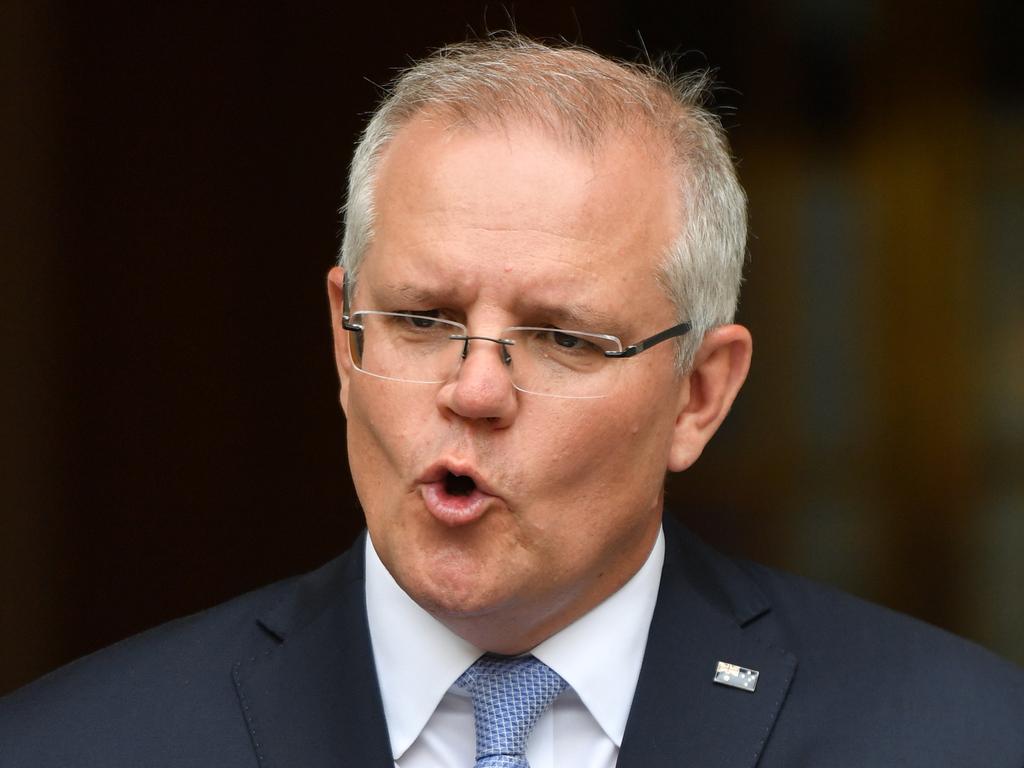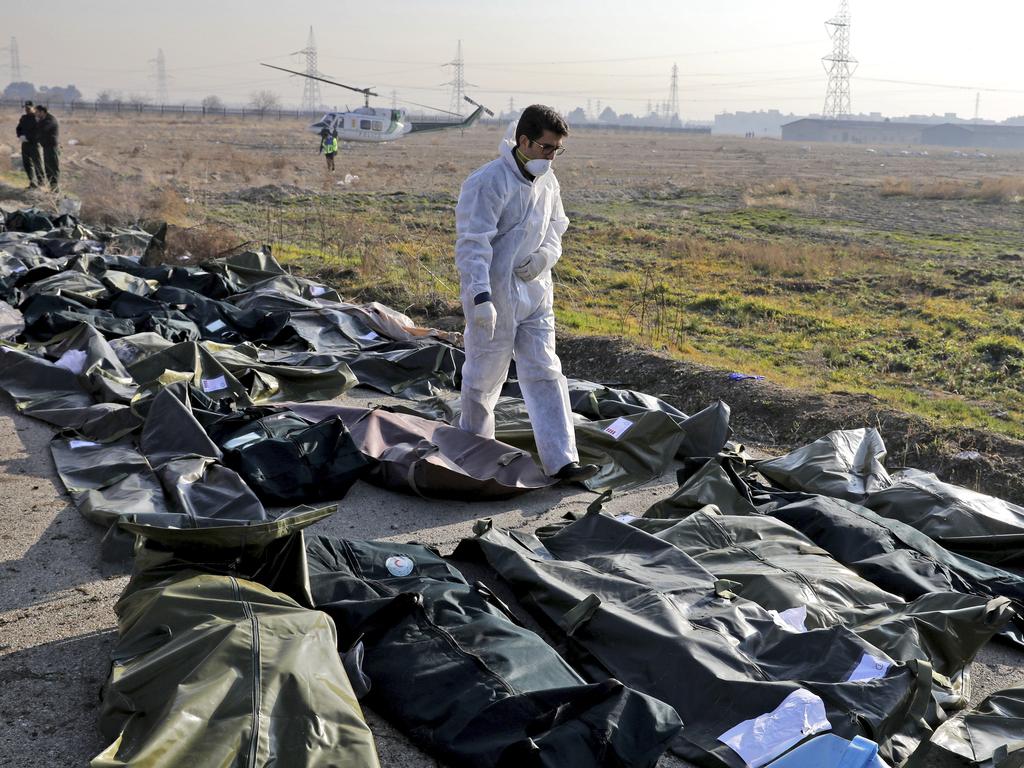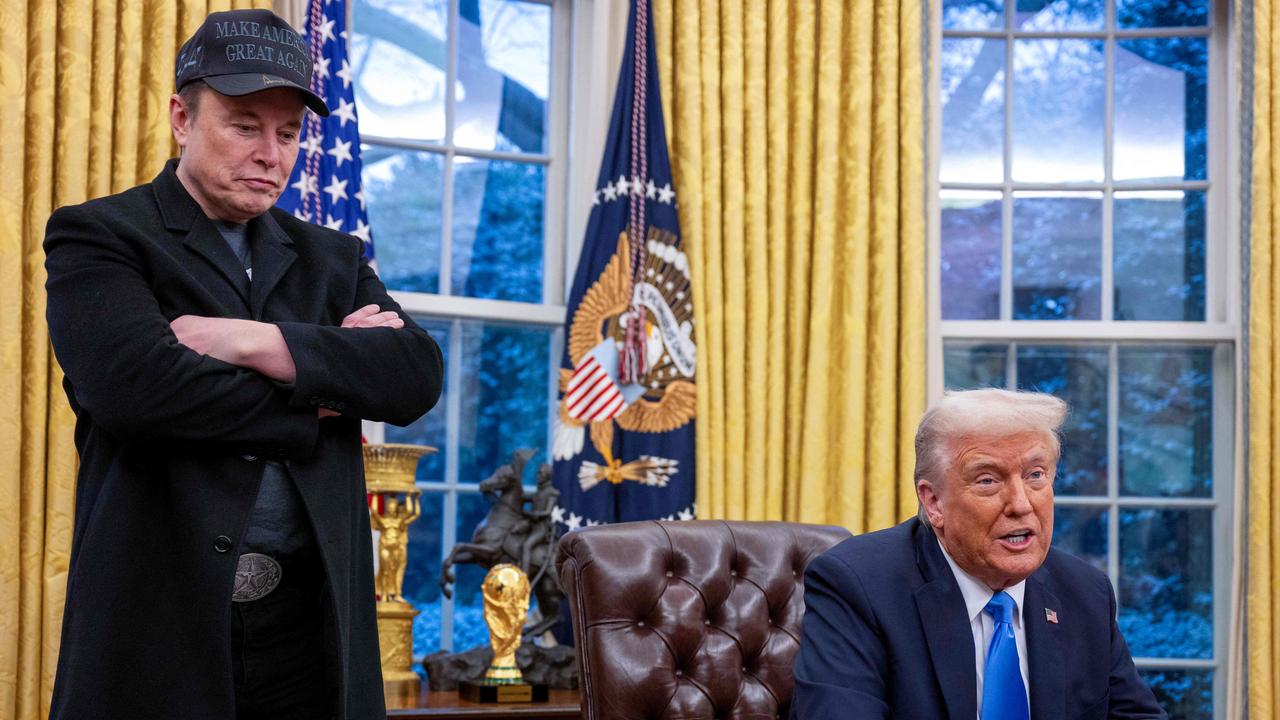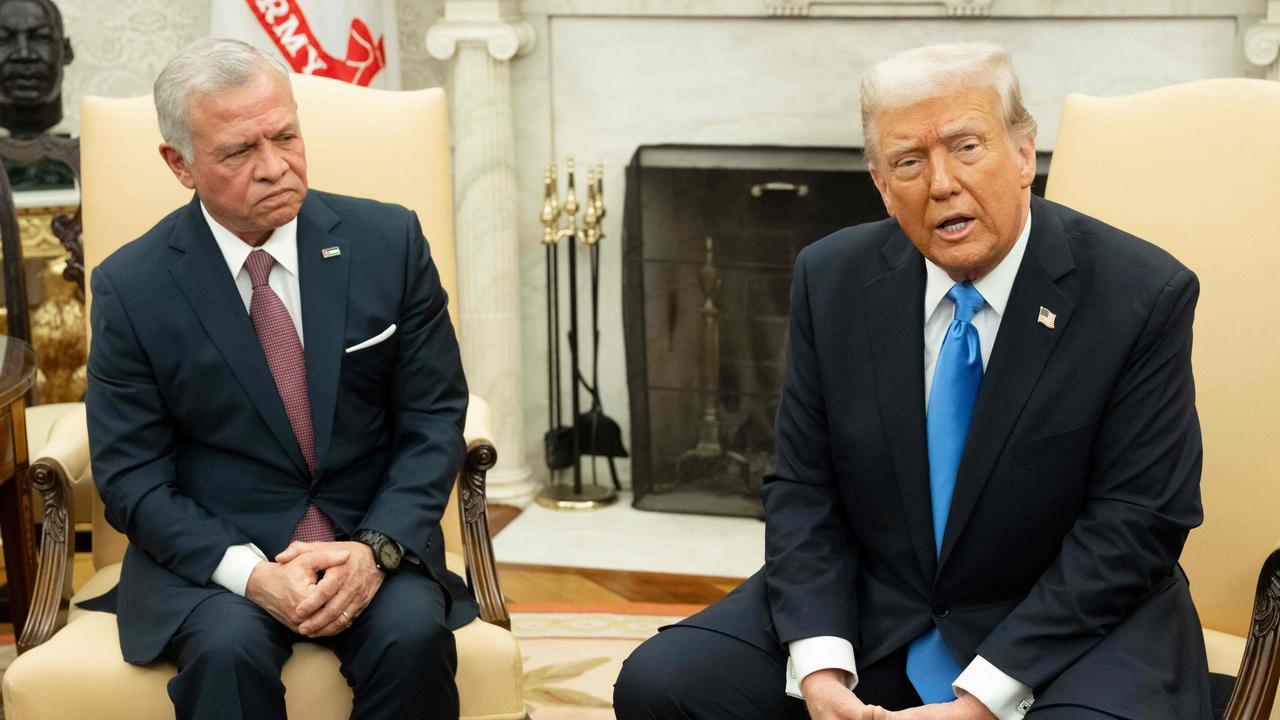Congress votes to restrict Donald Trump’s ability to attack Iran
Resolution that aims to stop Donald Trump from using military force against Iran labelled a ‘dangerous limitation on president’s authority’.
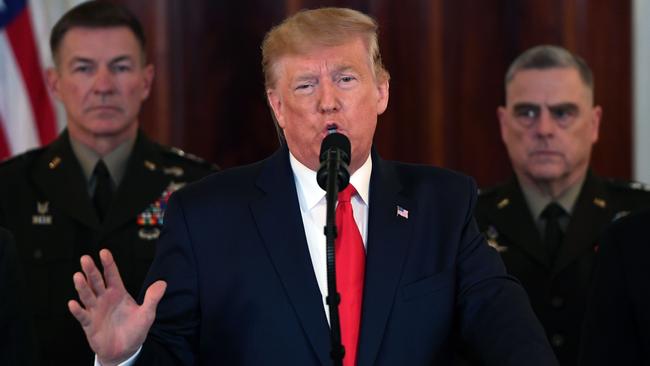
Congress has passed a largely symbolic measure opposing further military force against Iran without Congressional authorisation, a day after both Washington and Tehran appeared to back away from military conflict.
The resolution aims to stop Donald Trump from using military force against Iran unless it is necessary to defend the US, or Congress votes to approve it. House Democrats drafted the legislation, which the Senate would likely have to take up, in a form that would preclude Mr Trump’s veto but may have no legal force.
The resolution passed largely along party lines in a 224-194 vote, with eight centrist Democrats opposing the measure and three Republicans supporting it.
“This is a statement of the Congress of the United States and I will not have that statement be diminished by whether the president will veto it or not,” House Speaker Nancy Pelosi said.
Meanwhile, the Senate may soon vote on a separate measure that must come to the floor under Senate rules but that Mr Trump could veto if it passes both chambers.
The US killing of Iranian Maj. Gen. Qassem Soleimani last week in Baghdad has scrambled legislative priorities on Capitol Hill, putting the threat of a conflict with Iran at the top of the House’s and Senate’s agendas.
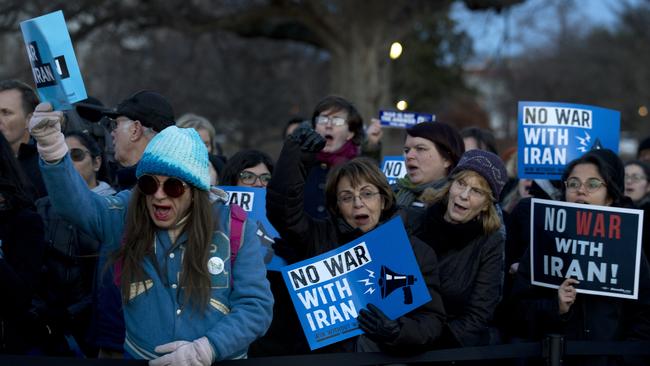
Iran on Tuesday responded to the US strike by firing roughly a dozen ballistic missiles at military bases in Iraq housing US forces. Both sides have signalled that no further military action is imminent. Mr Trump said Wednesday he would impose additional economic sanctions on Iran.
Many Democrats and some Republicans have said classified briefings from top administration officials on the exchange of attacks with Iran were inadequate and short on detail.
Rep. Elissa Slotkin, a former CIA analyst specialising in Shiite militias in Iraq who wrote the House measure, said it was an important step to involve the public in decisions about war.
“If our loved ones are going to be sent to fight in any protracted war, the president owes the American public a conversation,” she said. “The resolution we are voting on today allows us to start that debate as the founders intended.”
Mr Trump Thursday morning encouraged House Republicans to vote against the House legislation in a Twitter post.
In the GOP-controlled Senate, the resolution will face an uphill climb for passage. Even if it does pass both chambers, it is unclear whether it could shape US military policy.
Democrats introduced the measure as a concurrent resolution, a type of legislation that doesn’t require the president’s signature. The Congressional Research Service, Capitol Hill’s nonpartisan research arm, has found it “constitutionally suspect” whether such legislation could block the president from beginning hostilities, and the courts have never ruled on the question. Republicans have said the procedural method makes the legislation mere rhetoric.
House Minority Leader Kevin McCarthy lambasted both the substance of the Democratic resolution as a dangerous limitation on the president’s authority and the legislation’s legal authority.
“This resolution has as much force of law as a New Year’s resolution,” Mr McCarthy said.
A Democratic war-powers resolution in the Senate, introduced by Sen. Tim Kaine, is a joint resolution, which would go to the president for his signature.
A previous war-powers joint resolution withdrawing US forces from a Saudi-led war in Yemen, which passed Congress last year, was vetoed by Mr Trump.
Mr Kaine’s legislation picked up the support of two Senate Republicans, Sens. Mike Lee (R., Utah) and Rand Paul, after they criticised a briefing from the administration on Iran.
Mr Lee said he resented what he described as the administration’s demand for deference on the matter. Under Senate rules the war-powers legislation must come to the floor for a vote; four Republicans would need to join Democrats for it to pass.
Mr Kaine said Thursday he was making changes to the legislation at the request of Senate Republicans, including removing references to Mr Trump specifically and instead gearing the resolution toward presidential power more broadly.
“We would like to try to get one to the president’s desk,” he said. “This is all still evolving.”
Sens. Susan Collins and Todd Young said they were both working with Mr Kaine on changes to the resolution’s language.
“I agree with the intent but I think there’s some of the language that is problematic,” Ms. Collins said. Mr Young said he was in the same position. Sen. Mitt Romney said Mr Kaine’s first version of the resolution didn’t earn his support, “but he has made a number of changes since then and I’ve not seen the latest version, so I’ll be taking a look.”
House Democrats are also considering other pieces of legislation reining in the executive branch’s war authority, including repealing the 2002 authorisation for the use of military force against Iraq. The Trump administration has said the authorisation allowed the strike on Gen. Soleimani, while Democrats and some Republicans have said that it permitted hostilities against Iraq, not Iran.
The House previously voted to repeal the authorisation, which members of both parties have called outdated because of changing circumstances in Iraq. Democrats may also vote on legislation that would stop the administration from using funds for military activities against Iran.
The Wall St Journal


